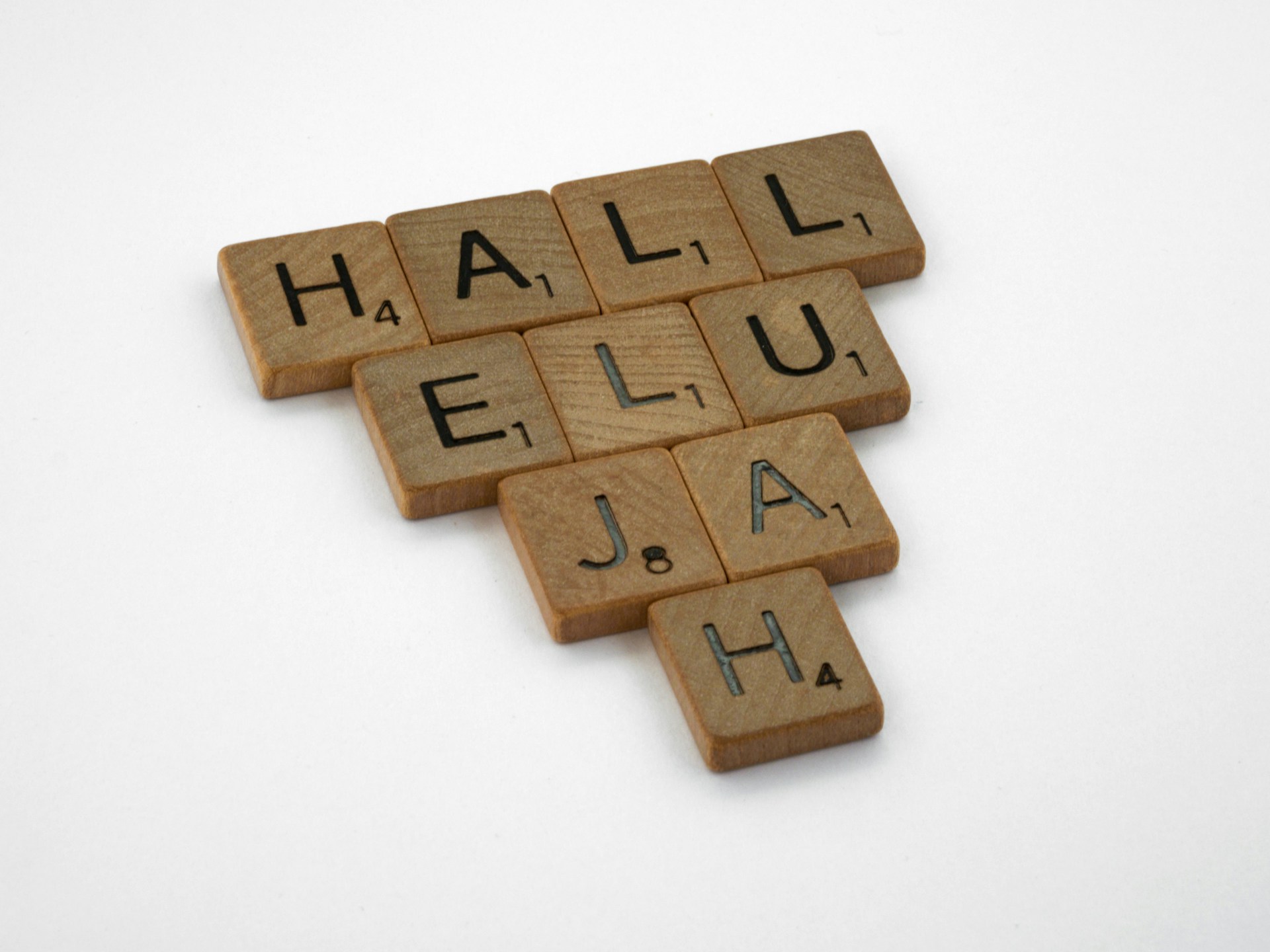Helen Tyte
Hallelujah!
Try and picture the scene: you are seated in the auditorium of the Royal Albert Hall on Good Friday for the performance of Handel’s Messiah. You have already heard the start of this amazing concert, which you know was written in 1741, performed for the first time in the Royal Albert Hall in 1872, and has been performed every Good Friday since 1876, barring cancellations during the Blitz and COVID. You have already heard some beautiful pieces of music, but then the violins leap into life for the finale of the second part: Handel’s “Hallelujah” chorus. Over the next four minutes the choir will sing the word hallelujah 48 times.
HalleLUjah!
HalleLUjah!
Hah-lay-ay-loo-YAH!
But what does hallelujah mean? And why do we continue to use it untranslated, thousands of years after it first appeared in the Hebrew bible?
Hallelujah can be explained as ‘a song or shout of praise to God,’ it’s a combination of two Hebrew words: ‘hallel’ meaning ‘’to praise’ and ‘jah’ from Yahweh, or God. The word first appears in the Hebrew Bible in the book of Psalms, and it is often used at the end of passages when we want to praise God, or something that God has done.
In Handel’s great chorus, the word is joyous and victorious, accompanied by strings, oboes and trumpets, but we use it in everyday language too, especially if things start to go well after having been difficult. The car won’t start, you turn the key and the engine coughs, splutters and rattles, then finally it catches and roars into life, ‘Hallelujah’! The electricity bill for January isn’t quite as high as it was in December, ‘Hallelujah!’
In 1984 Leonard Cohen wrote his song ‘Hallelujah’, which was later used in the movie ‘Shrek’.
Since the fifth century the western Catholic Church has omitted the word ‘Hallelujah’ from its liturgy used during the 40 days of Lent, to be joyously revived during Easter celebrations. After almost three thousand years we are still using this word to express our joy. Maybe we have preserved the word in its original form because the word evokes such emotion in itself, as it is a beautiful way of saying ‘praise the Lord’.
Hallelujah!








 and then
and then
Delete Reply
Are you sure you want to delete this Reply?
Hallelujah! 🤗🙏🏾🙌🏾🥰